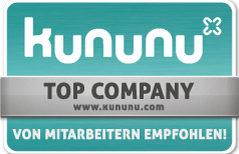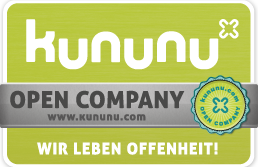7 questions for... Thomas Bechteler
1. Give us a small insight into your digitisation strategy. How did the transformation begin in your company?
Thomas Bechteler: The initial digitisation spark came for us in February 2017 when proptech was declared the future of the real estate industry. An in-depth examination of the numerous start-ups in this area proved intriguing to us, as did the market of investors throwing fantastical sums of money into these – often still very novel – ideas.
A few weeks later we founded our Innovation Lab with representatives of generation X-Y-Z and a dog, put wooden pallets on the wall, sat on beanbags, ate cake pops and seriously questioned everything that had made us so successful over the past few years.
2. Why do you need digital services for your business?
Bechteler: Up to now, the real estate industry, especially in the area of housing management, has seen itself as part of the old economy with a rather limited degree of automation.
Our original business model, the renting of living space, is subject to strict regulations. The housing industry and the issue of socially compatible housing availability are also a perennial topic of focus in the media. At the same time, we are also concerned about the demographic developments that are already today making it increasingly hard for us to find and retain staff.
Our staff capacity will only grow more scarce in the future. Digital services help us deploy this capacity so efficiently that our products and customer base continue to grow, enabling us to increase our competitive advantage on the market. In addition to this, we also need increasingly sophisticated systems to fulfil all regulatory requirements.
3. How are new digital solutions created in your company? Do you have a specific recipe for success?
Bechteler: Despite years of experience and an advantageous market environment at the moment, we try to always have a critical view and look for ways to make things even better. Questioning the status quo every day to identify more potential for efficiency is part of Dawonia’s DNA and our conception of future-compatibility.
4. And what are the most important new technologies that you are working on right now?
Bechteler: We are working closely with PROMOS in the area of service automation, such as with the marketplace in our “My Dawonia” tenant app. Together with cable providers, power utilities, insurance companies, hardware and furniture stores, we are exploring opportunities to accompany our customers on the path from their empty new apartment to feel-good living and let them profit from the combined demand of 70,000 tenants.
5. In your opinion, what are the biggest changes that digitisation will bring for your company?
Bechteler: For well-educated employees, it is not satisfying work to type up handwritten questionnaires for entry in SAP®. Tenants should no longer have to deal with days-long waiting times for minor issues or have to take time off for an appointment to discuss a utility statement. We want to be where our tenants need us. We want to make it possible for our employees to tailor their work to their personal needs through time and location flexibility with a healthy work-life balance. The biggest change in our company stemming from digitisation is the culture.
I think digitisation will bring about significant improvements there both for users and for the company.
Bright Minds, Clear Insights
6. What kind of impact will the new technologies (big data, artificial intelligence, machine learning) have on the real estate sector?
Bechteler: We already have plans for scenarios with all these technologies and are working on implementation projects. For example, we are currently working with a provider of document management solutions on using AI to read and interpret correspondence and combine this with machine learning. Even now, these technologies are already highly developed and achieve amazing results.
We still consider big data a difficult topic in this age of the GDPR, even if it is anonymised first. For this reason, we are waiting to take concrete action in this area until a legal framework has been established that sufficiently ensures anonymity when using this data.
I personally consider AI to have the biggest short-term potential, though I wish the term were not used in such an inflationary way in our industry as it is these days. Not every if-then rule can be assigned to AI.
These topics will not be as clearly differentiated in the future. Big data will serve as the basis for AI machine learning. For example: if we could take anonymised data from all the radiators in the apartments we manage and use it to optimise energy usage with a solution developed through machine learning and AI, we would be able to achieve huge reductions in the CO² emissions of our buildings.
7. To conclude: When was the last time you experienced a magical moment in which an innovative technology truly astounded you?
Bechteler: I still consider the most magical aspect of these technologies to be the people who have managed to reduce the complexity of our human actions to such a degree that machines with high computing power can emulate something that we would describe as intelligent.
Thank you for the interview.
The series “7 questions for...”
is dedicated to digital innovations in the real estate industry. How well placed are companies? Which measures are they focusing on? Experts and industry insiders answer questions in brief interviews.
Part 2:
Thomas Bechteler, head of IT / organisation & digitisation of Dawonia

